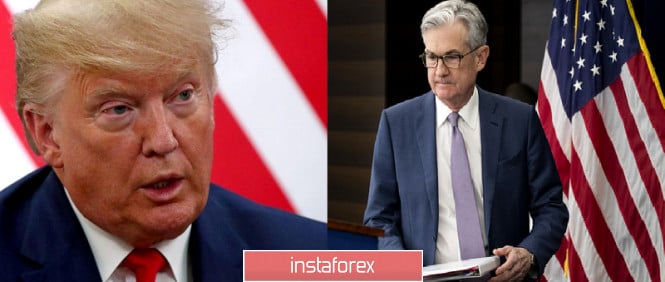
The Trump administration discussed last Tuesday the further measures that could help those who are affected the most by the effects of the coronavirus outbreak. Treasury Secretary Steven Mnuchin said during the White House briefing that "the President wants to give the money now" to the public, and will discuss it within the next two weeks. In addition, Mnuchin also said that the administration "believes that the markets will be open", but is considering the reduction of the market's opening hours.
Just a day earlier, during a press conference, Donald Trump described a grim picture of the coronavirus outbreak. He admitted that the US "may" be heading towards a recession, where after which, he predicted that growth would increase sharply. He also forecasted that the coronavirus outbreak, as well as the measures provided to combat this disease, may last until August.
Nevertheless, in order to mitigate the impact of the outbreak on the economy as much as possible, the US government stressed its readiness to provide at least some assistance to individuals and corporations most affected by the outbreak. Trump promised that he will "support airlines 100%", as travel demand declined, and air carriers have been incredibly affected by it. The airline industry has requested more than $ 58 billion in state aid, just so it could in the current circumstances.
Back in Congress, on Monday, the House of Representatives unanimously passed a revised multibillion-dollar coronavirus emergency law and sent it to the Senate for a vote. At least $750 billion is to be allocated to fight the effects of the outbreak, including for hospitals, expanded unemployment insurance, small businesses, and food aid.
The situation abroad also continues to develop: on Monday, the President of France, Emmanuel Macron, said that the country will guarantee companies bank loans worth up to € 300 billion and allow them to defer paying taxes and social insurance contributions during a period of instability. He also ordered citizens to stay at home and leave only for basic duties, reflecting efforts in other countries and municipalities most affected by the coronavirus outbreak.
Other updates: on Monday, Germany closed all its borders except for commercial travel, temporarily banning non-essential travel to the European Union as a whole. In North America, Canada has closed its borders to most non-residents, offering some benefits, including for US citizens.
As travel links between countries end, economists are increasingly preparing for a major blow to global GDP growth in 2020.
"In a realistic scenario where travel and tourism have fallen by 50% in four or five months, annual global GDP growth will be reduced by about 0.7%," Jennifer McKeown, head of Global Economics Service at Capital Economics, wrote on Tuesday. "Indirect consequences or disruption to domestic travel could make it hit even harder. Moreover, the burden on insurers and airlines increases the risk of a financial crisis."
Amid all this, the Federal Reserve is restoring its crisis-era commercial paper fund in order to help businesses generate short-term revenue, easing the disruption caused by the coronavirus outbreak.
"The commercial paper market has been under significant strain in recent days, as businesses and households face greater uncertainty due to the coronavirus outbreak," the Fed said in a statement.
"Initial data from China show that its economy has suffered much more than forecast, despite the fact that stabilization has already begun," S&P Global Chief Economist Paul Grunwald said on Tuesday. "Europe and the US are following a similar scenario, as growing restrictions will sharply reduce activity in the second quarter, before recovery begins."
The material has been provided by InstaForex Company - www.instaforex.com